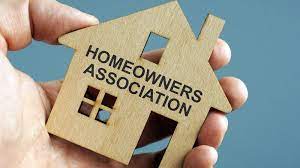As a member of a homeowners association (HOA), it is natural to question the many rules that govern your HOA community and how some may seem petty. However, it's important to understand that these seemingly trivial rules may actually serve a greater purpose in maintaining the overall safety and appearance of the neighborhood. Let’s take a closer look at HOA rules and explore how they are enforced, as well as provide some tips for navigating these rules.
What Are Petty Rules
Let's start by defining what we mean by "petty rules." These are rules that may seem insignificant but are still enforced by the HOA. Examples include restrictions on the color of your front door, the type of landscaping allowed in your front yard, or limitations on what can be stored in your garage. While some homeowners may view these rules as trivial, they can actually play an important role in maintaining the aesthetic and safety of the community.
Imagine if every homeowner in the community painted their front door a different color or put up a large fence without approval or completely changed the landscaping so it did not match the rest of the community. The community would lose it overall look and as result home values might drop.
It's important to note that while some HOA’s may be stricter than others when it comes to enforcing rules, as a member of the HOA, you agreed to follow the rules and regulations set forth by the association. This means that any rule can be enforced if necessary. And what most homeowners miss is the rules are there to protect aesthetics of the community and the home values for the owners.
Read the Governing Document
To navigate these rules, it's important to familiarize yourself with the governing documents of the HOA, such as the bylaws and CC&R’s (Covenants, Conditions, and Restrictions, also known as the declaration). These documents outline the rules and regulations of the community and can give homeowners a better understanding of what is expected of them. If you do not have a copy of these documents, you should request a copy from your Board or HOA Manager.
Additionally, attending HOA meetings and getting involved in the community can help you stay up to date on any changes or updates to the rules. It also gives you a chance to voice your opinions and concerns. You can even volunteer to be on the board and play a role in designing and implementing the HOA rules.
Know the Rules Before You Move In
When looking to move into an HOA, it's important to familiarize yourself with the expectations of the community. This includes knowing whether certain rules, such as limitations on parking or not allowing barbeques, may impact your lifestyle. By doing so, you can ensure that the HOA is a good fit for you.
Consequence of Violating the Petty Rules
The consequences of violating HOA rules can vary depending on the severity of the violation. For minor infractions, you may receive a warning or a fine. However, repeated violations or severe breaches of the rules can result in legal action, fines, or even foreclosure. Violations can also damage your reputation within the community and negatively impact your ability to sell your property in the future.
If you violate HOA rules, it is important to take prompt action to address the violation. The first step is to review the rules and understand the nature of the violation. Then, take corrective action as soon as possible to remedy the situation. If necessary, seek guidance from the HOA board or management company to ensure that you are taking appropriate steps. Failure to take prompt action or address the issues with the Board if a violation or fine is posted could result in more severe consequences.
HOA rules may seem petty or unnecessary to some homeowners, but they serve an essential purpose in maintaining the value and quality of your community. By enforcing rules around property maintenance, safety, and community involvement, HOA’s can help create a cohesive and well-functioning neighborhood. As a homeowner, it's important to understand the role that HOA rules play in your community and to follow them.
About the Author
Mike Lautensack is the owner/broker of Del Val Realty & Property Management ("Del Val") a FULL SERVICE Residential Property Management company with over 17 years' experience and managing over 4,800 single family homes, HOA units and multifamily properties in and around Philadelphia, PA. Mike is also an author of Landlord Secrets: A Complete System for Managing Your Rental Properties for Maximum Profit! Mike is a licensed real estate agent and principal broker of Del Val, member of the National Association of Residential Property Managers (NARPM), holds the Accredited Residential Manager® (ARM®) designation through the Institute of Real Estate Management and holds the M100 accreditation with Community Association Institute (CAI).
For more information on HOA management feel free to visit our website at https://www.delvalproperty.com/hoa-condo-management

